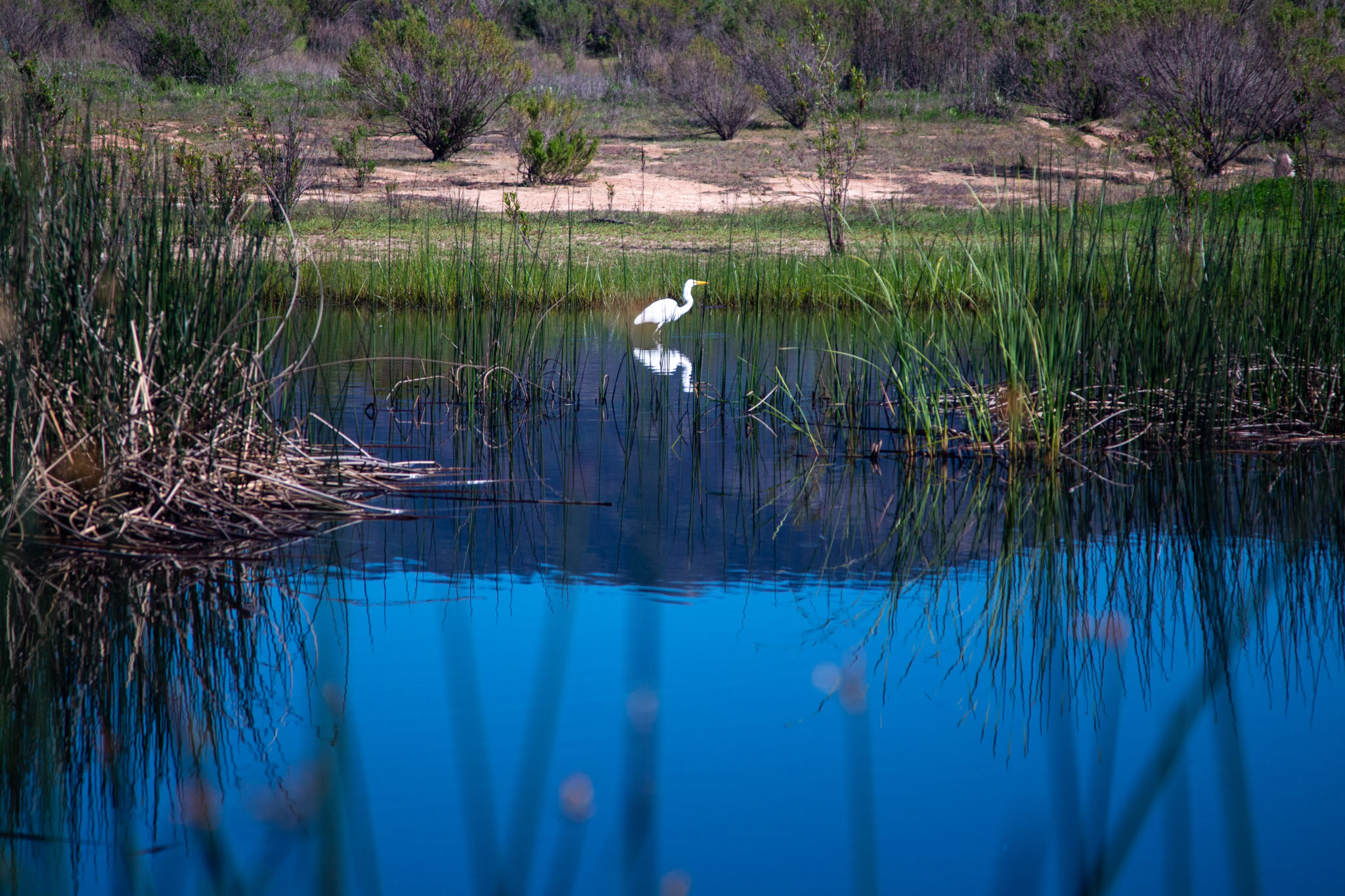April 22, 2023
VC Star
A Jacuzzi hot tub sits in a fenced-off section of a parking lot at the Ventura County Government Center. Next to it, in a locked storage container, is an inflatable Zodiac raft.
Neither is an employee perk. The tub was rescued from disposal and is used by the Ventura County Vector Control program for the breeding of Gambusia affinis, the western mosquitofish. The raft is used by those same workers to apply biological larvicide to mosquito-infested areas in large bodies of water.
California’s Mosquito Awareness Week, which ends Saturday, came after a particularly wet winter. The six staff of the Ventura County Vector Control District, who report to the Ventura County Environmental Health Division, plan to be bolstered by the hiring of nine seasonal workers.
In a typical year, vector control staff respond to more than 140 requests for mosquitofish. The government center hot tub can’t supply fish for all of those requests, so workers also collect excess fish from locations where they originally placed fish years ago, such as local golf course ponds.
Also, at least a few homeowners with ponds also call the mosquitofish request line each year to report excess fish and ask whether staff would like to take some to other homes, according to Cary Svoboda, program lead of vector control.
Some homeowners need help controlling mosquitos in shallow fountains or other water sources unsuitable for sustaining fish.
For those sources, the vector control program recommends the same larvicide staff use in natural bodies of stagnant water. Vector control workers steer the Zodiac raft into pockets of water and apply larvicides such as VectoBac, which can be applied in environmentally sensitive areas because it is a biological agent. VectoBac uses granules made from corn cobs and infused with bacteria, producing an enzyme lethal to mosquito larvae.
Mosquito larvae filter feed, ingesting the bacteria, which emits enzymes, bursting the larvae from the inside. This method is highly target-specific, affecting only mosquito larvae and closely related insects, such as black flies and some midges, according to Svoboda. Homeowners can buy the biological control agent in products like MosquitoBits and Mosquito Dunks at home and garden stores and apply it every 14-30 days.
Chlorine also kills mosquito larvae, but to chlorinate, “you have to hire maintenance or stay on top of the tablets and procedures,” Svoboda said. Chlorine evaporates rapidly and some people are concerned about pets or wildlife drinking highly chlorinated water. Natural larvicide is easier to use, but mosquitofish are the easiest.
“With mosquitofish, it’s set it and forget it,” Svoboda added.
Of course, preventing infestations is far more important than controlling them.
To prevent mosquito breeding, empty sources of standing water. If you have a rain storage barrel, ensure all openings are covered with a fine-mesh screen. Check planters and pots for drainage after watering and rains. Beware of water collecting on top of tarps. As little as a teaspoon of water standing for seven days can produce mosquitoes.
Many people are also not aware of the mosquito danger posed by tire storage. Whether a tire is stored on its edge or flat on the ground, its curves direct water inside during rain or sprinkler watering. Black rubber in the sun heats water during the day, making it a breeding ground for mosquitos.
Avoid this problem by giving tires to your tire service center when buying new ones. If you’re sure you will reuse a tire and want to save it, keep it indoors or covered with a tightly stretched tarp.
The chance of mosquitoes spreading diseases like West Nile virus to people are very low, Svoboda said, but vector control staff work hard to lower that risk and to reduce the nuisance factor.
“Nuisance is a quality-of-life issue and a matter of public health,” he said. “People are healthier and happier when they can enjoy their outdoor spaces without the harassment of mosquitoes.”
If you’re experiencing a mosquito infestation or see stagnant water in danger of hosting an infestation, call the mosquito complaint hotline at 805-658-4310. The mosquitofish request line can be reached at 805-662-6582.
David Goldstein, an environmental resource analyst with the Ventura County Public Works Agency, can be reached at 805-658-4312 or david.goldstein@ventura.org.




